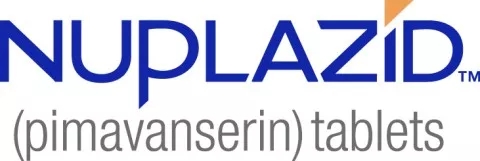Recent research progress in the field of central nervous system diseases (03.06) March 06, 2018 Source: WuXi PharmaTech 1. Huntington's disease can remove up to 60% of pathogenic proteins Ionis Pharmaceuticals has published positive top-line data from a 1/2 phase study of the new drug IONIS-HTTRx (RG6042) in the treatment of early Huntington's disease (HD) patients. These data indicate that IONIS-HTTRx (RG6042) is the first new drug to reduce the pathogenic proteins in HD patients. HD is a rare genetic neurodegenerative disease in which the patient's cognitive and motor skills decline gradually and eventually die of pneumonia, heart failure or other complications. There are approximately 30,000 HD patients in the United States, and 200,000 people are at risk of developing HD. The cause of HD is the amplification of the trinucleotide sequence of the gene encoding the huntington protein (HTT), which makes the HTT protein toxic and gradually damages neurons in the brain, resulting in decreased mental and physical control. At present, existing therapies can only alleviate the symptoms of HD, and no treatment to change the progression of HD disease has been approved by the FDA. The IONIS-HTTRx, jointly developed by Ionis and Roche, is an antisense innovative therapy that targets mRNA encoding the HTT protein. By binding to mRNA encoding the HTT protein, IONIS-HTTRx is able to reduce the occurrence of all HTT protein translations, so the drug can reduce the production of toxic mHTT regardless of where the gene mutation encoding HTT occurs. It has been granted orphan drug status by the US FDA and the European Medicines Agency (EMA). In this placebo-controlled, randomized, dose-increasing clinical phase 1/2 trial, 46 HD patients received a weekly injection of IONIS-HTTRx (RG6042) or placebo at a dose of 10 mg, 30 Mg, 60 mg, 90 mg or 120 mg for 13 weeks. The results showed a significant dose-dependent decrease in the level of mutant huntingtin (mHTT) observed in the cerebrospinal fluid of HD patients treated with IONIS-HTTRx, with an average decrease in mHTT of 40 at the two highest doses of 90 mg and 120 mg. %, up to 60% reduction. ▲ Dr. Frank Bennett, Senior Vice President of Neurology Research at Ionis (Source: Ionis Official Website) Dr. Frank Bennett, Senior Vice President of Neurology Research at Ionis, said: "We are pleased to learn that this antisense drug for all forms of Huntingtin is safe and well tolerated. We look forward to working with Roche to speed up the IONIS-HTTRx ( RG6042) is pushed to critical research and ultimately approved for marketing and benefits HD patients." 2. The new version of CRISPR technology is expected to cure Huntington's disease Researchers have long sought to use genetic editing techniques to treat disease. For hereditary diseases, such as Huntington's disease (HD), a neurodegenerative disease caused by defective genes, it seems that a DNA sequence that causes disease is a viable therapy. However, researchers need to ensure the safety and efficacy of the therapy before editing the patient's DNA. The new version of the gene editing CRISPR/Cas9 technology enhances the safety of treating these genetic diseases, the related paper published in the journal Frontiers in Neuroscience. Huntington's disease is caused by an abnormal repetition of specific DNA sequences at the end of the Huntington gene. This defective mutant gene results in the production of toxic proteins that gradually accumulate and damage the patient's neurons. The disease usually begins in the 30s and 40s, and in the decades after the onset of the disease, the patient gradually loses the ability to move, talk or even think. HD is currently not cured. Researchers have tried many ways to suppress defective genes to block the production of toxic proteins. Recently, researchers have begun to use the new gene editing tool CRISPR/Cas9 technology, which is easier, faster and more accurate than past tools. To ensure that the technology is as safe and effective as possible, the researchers tested a new Cas9 protein variant in a patient model of Huntington's disease. This version of Cas9 can cut a DNA strand instead of two DNA, which increases the accuracy with which Cas9 can edit specific DNA sequences. ▲Researcher, Dr. Marta Olejniczak, Associate Professor, Institute of Bioorganic Chemistry, Poland (Source: Institute of Bioorganic Chemistry) “In the study, we further improved the CRISPR/Cas9 technology by using the enzyme activity of Cas9,†said Dr Marta Olejniczak, associate professor of the Institute of Bioorganic Chemistry, “Because Cas9 has been recognized as Safe and effective, our method can provide an effective treatment tool for HD. We have verified that Cas9 can excise repetitive DNA sequences, thereby inactivating HD-inducing genes and terminating the synthesis of toxic proteins. Efficient, no sequence-specific side effects were observed." 3. Relieve the mental symptoms of Alzheimer's disease, the new drug phase 2 results are significant Recently, a positive phase 2 clinical trial of pimavanserin in the treatment of psychotic symptoms in patients with Alzheimer's disease (AD) was published in the March issue of Lancet Neurology. About 8 million people in the United States suffer from dementia, and about 5.5 million of them suffer from AD. Studies have shown that about 30% of people with dementia suffer from mental illness, usually including hallucinations and delusions. Dementia-related psychoses include AD, Lewy body dementia, Parkinson's disease dementia, vascular dementia, and frontotemporal dementia. The consequences of the disease are related to the severity or persistence of mental illness in dementia patients, such as repeated hospital admissions, premature admission to nursing home care, rapid progression of dementia, increased morbidity and mortality. Pimavanserin is a selective serotonin inverse agonist (SSIA) that preferentially targets the 5-HT2A receptor, which plays an important role in dementia-associated psychosis. In 2016, the FDA approved Pimavanserin (NUPLAZID®) for the treatment of hallucinations and delusions associated with Parkinson's disease, the first drug to be used for this indication. The second phase of the study was a double-blind, placebo-controlled, single-center trial involving a total of 181 AD patients who developed delusions, hallucinations, or both. They were assigned to receive 12-week pimavanserin or placebo treatment, and then assessed for symptoms on the Nursing Home Edition (NPI-NH) Neuropsychiatric Scale at weeks 2, 4, 6, 9 and 12 after dosing. The primary endpoint was NPI-NH change from baseline to week 6, with lower scores indicating fewer symptoms. The results of the Alzheimer's Disease Clinical Trial (CTAD) meeting last year showed that at the 6th week, the NPI-NH score of the treatment group decreased by 39.5%, which was significantly higher than the 19.3% of the placebo group. The main end point. Moreover, no damage was observed to the patient's cimavanserin. "Phase 2 clinical studies have shown that pimavanserin significantly reduces mental illness in patients with Alzheimer's disease and has no negative impact on cognition," said research leader, vice president of the University of Exeter Medical School. Dr. Clive Ballard, Executive Dean, said: "Pimavanserin is well tolerated compared to the known side effects of current antipsychotic drugs. There are still no approved treatments for dementia-related psychosis. Major unmet needs. The results of this study suggest that pimavanserin may be an important new treatment option for this unmet old population." Reference materials: [1] Ionis and Roche Tout Positive Data in Early-Stage Huntington's Disease Trial [2] Scientists move closer to treatment for Huntington's disease [3] Pimavanserin Phase 2 Trial Data Published Original Title: Recent Research Progress in the Field of Central Nervous System Diseases (Phase 50) Tetanus Shot,varicella vaccine, Live,Hepatitis B Injection,Hep B Vaccine FOSHAN PHARMA CO., LTD. , https://www.fospharma.com




Recent research progress in the field of central nervous system diseases (03.06)